5 Surprises About Buying a House in France (vs New Zealand)
It’s been a hot minute since we first set out to buy a house in France. Our search was centred around the bucolic town of Saintes where we eventually found our very own “place in the sun” complete with requisite pool and ancient garden well.
Fast forward a year and we’re doing it all over again – this time in picturesque Provence! We moved near Aix-en-Provence in February (2017) for a short-term work contract, and we’ve been seduced by the area’s charm, fantastic weather and amazing landscapes.
Despite our love of watching other expats find their dream home in France (thank you UK tv!), the real-life version is somewhat more tedious. Did you know that buying a house was recently revealed to be one of life’s most unpleasant experiences? I don’t know why this surprised me, given the number of new grey hairs, sleepless nights and frantic phone calls I’ve had to endure over the last few weeks as we embark on house purchase number 5.
Yes, we’ve ridden this roller coaster five times. Three houses in New Zealand, and (almost) two in France later, you think we’d just do what normal people do when they like to move a lot. Rent, that is.
Buying a Home in France vs Buying a Home in New Zealand
Despite our nomadic ways, we enjoy having a home base. So we continue to move, but we learn as we go. Our latest lesson? How buying a house in France is full of surprises – and very different from what we’ve experienced in New Zealand!

1. Secret squirrels
One of the biggest frustrations we’ve had with buying a house in France is the secrecy surrounding locations. Listings will give you the village, and may offer a clue such as “centre-ville”, but more often than not you’re left guessing…
Instead, you must call the agent to organise a viewing. They’ll then meet you at their office or a mutually arranged spot and you’ll follow them to the house. This is fine until you realise that some properties can easily be ruled out on location alone (it’s called “Location, Location, Location” for a reason!). You could end up wasting the agents time, your own time, and the owners time.
In New Zealand, there is normally (unless it’s an exclusive high-end property) transparency around the location. The address is listed in ads and online, and it’s not unusual to check out the house & area before deciding whether it’s worth viewing or not.
Open homes are on 1-2 times a week for around an hour. This is when you can see the house without an appointment. You can also normally arrange a private viewing if you can’t make the open home times.
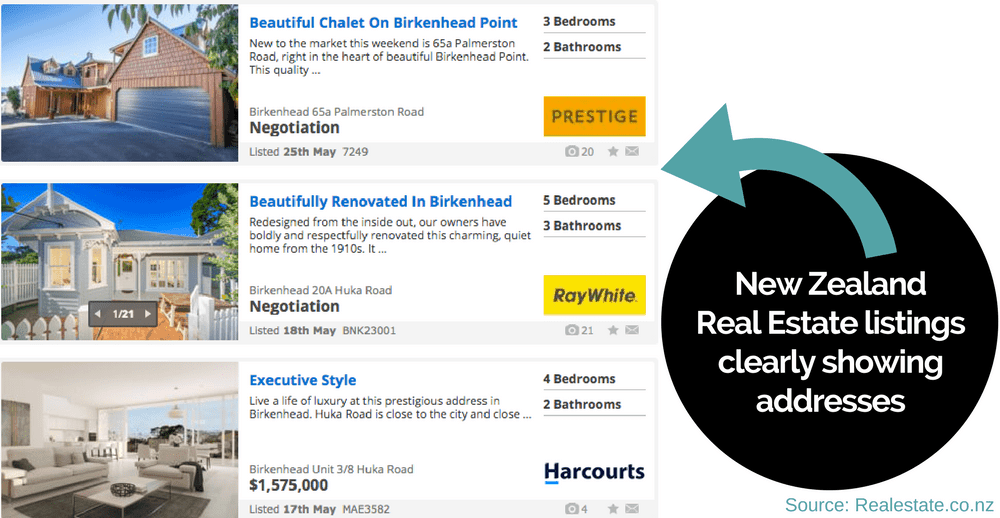
I figure the reason for the French not giving away the address is that they’re worried you’ll undercut them and go to the owners directly. This may be a valid concern, however frustrating it is for buyers!
In New Zealand, agents get around this by making you sign a waiver that you cannot sell your house privately (or with another agent) for a set amount of time.
2. Presentation
Flicking through images of dreamy countryside châteaux on the Sotheby’s website probably wasn’t the best introduction to the reality of French real estate.
When we did start looking at houses in our price range, it became glaringly obvious that presenting a house for sale is somewhat *ahem* different here… I mean, would you be convinced to drop over €300k on a house by this photo?
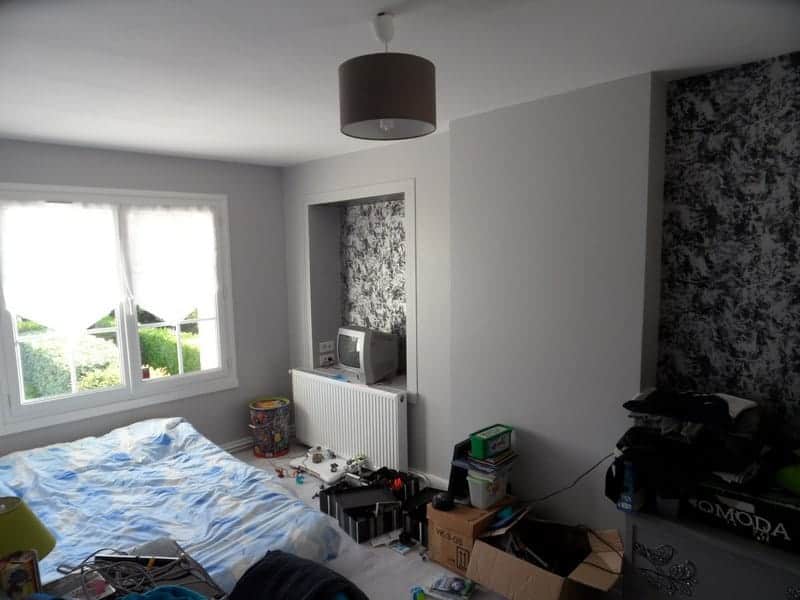
Adverts on real estate search engines display one solitary photo at worst, and up to 8 at best. They sustain the sole purpose of giving you a rough idea of the qualities of the house, but most certainly don’t serve to “sell” the house in any way. And viewing day presentation is met with the same nonchalant attitude.
In New Zealand, it’s common to get the cleaners in, de-clutter with vigour and hire professional photographers to present your home for sale. Hell, we even re-grassed the entire lawn in one property, and hired a guy with a drone to take aerial shots for another! We figure that what you put into presenting your house you’ll more than recoup when you sell well as a result.
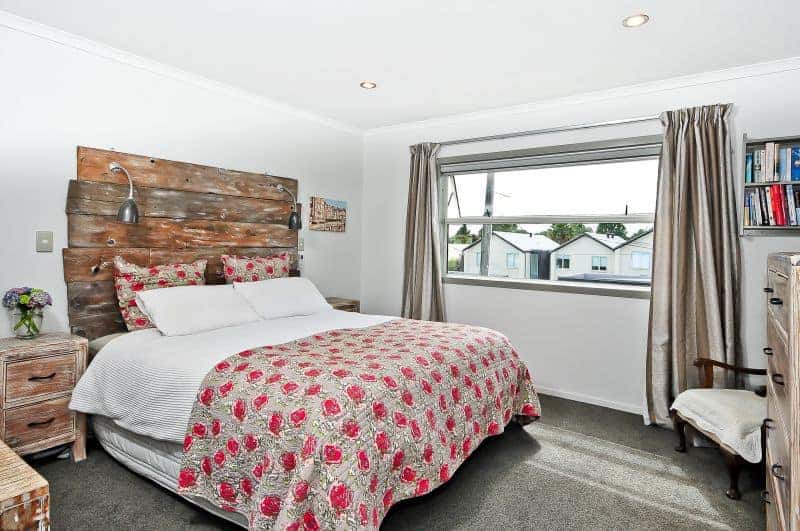
Sellers in NZ commonly pay for ads in local papers, and online listings sport around 10-20 carefully curated photos. Open homes are no exception either. The house will be spotless, sporting fresh flowers and perfectly preened gardens on the day of viewings.
3. A garden isn’t a given
French villages have oodles of charm and character. I mean, who wouldn’t want to live in a pretty stone village house complete with Juliette balcony, flower boxes and fittingly distressed shutters? I know this was my dream when we arrived in France!
But there’s one hitch. Outside space is at a premium. Most houses near the centre of the village have none at worst, and an elevated courtyard at best. If you’re really lucky, you’ll find a ground-level terrace – which is most often paved.

This isn’t a problem for many people, but if you have dogs or small children you may find the arrangement lacking. Outside of villages or towns, you will find decent-sized yards, but you can kiss goodbye to the dream of owning a character-filled property.
This becomes less of a problem as your budget increases though! Old country farmhouses or the Provençal “Mas” have the best of both worlds – space, bucket loads of charm, and a large garden to boot…
Meanwhile, many New Zealanders grew up with what is now referred to as the “quarter-acre dream” – a modest 3/4 bedroom property on a large fenced section in the suburbs. Although this is getting harder to come by in the larger cities of New Zealand (and almost impossible in Auckland!), the need for a garden is still ingrained in Kiwi culture.
Families especially want enough space to have the impromptu game of backyard cricket, and trampolines are a common sight in backyards country-wide.
4. The price isn’t really the price
See a French house within your budget? Awesome! Except is it still within budget when you add in the 8% (approx) Notaire’s fee? Yep, you read that right. A lofty percentage of the purchase price is added back on top of the listing price.
Although it’s called a Notaire’s fee – the majority of this fee is tax payable to the state, with only a fraction going to the Notaire. Suddenly that bargain property doesn’t look like such a steal!
When buying a property in New Zealand, you can expect to pay around NZD$1k for your lawyer to process the sale, but that’s it. The price you see is the price you’ll pay (unless of course, you manage to negotiate it down!).
– But at least you know the price!
While there are hidden fees to take into account when buying French property, one major benefit is knowing the price to begin with! Most properties have a price tag in France. But in New Zealand, auctions and negotiations are commonplace, so you’re often left to your own assumptions.
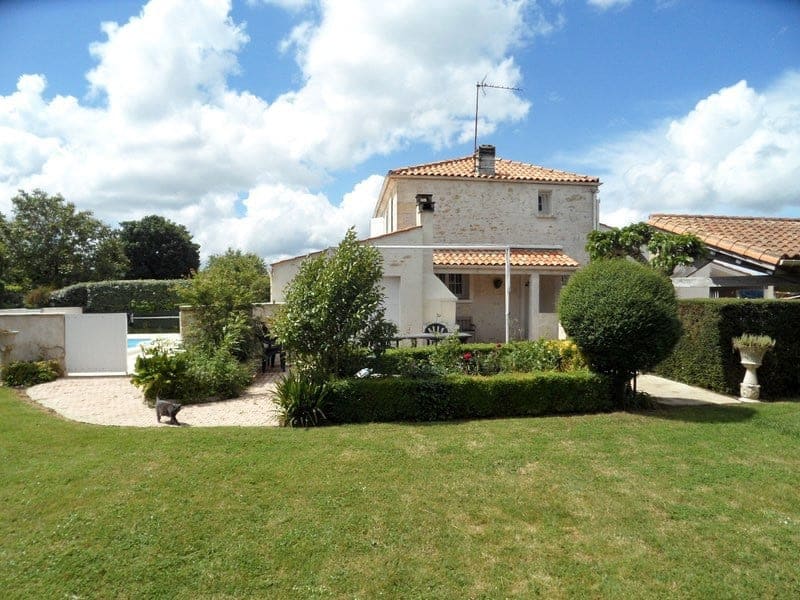
5. Good things take time
So you’ve found your perfect French house, agreed on the price and got your finances in order… Fantastic! Now all you have to do is wait. And then wait some more. The settlement date is a fluid notion that’s subject to the local Mayor’s office efficiency, the Notaire’s workload, and often a good dose of luck (good or bad!).
The average time from agreement to settlement in France is about 3 months. In our experience, this can be shortened by making a few phone calls and pleading your case with a compelling argument. Either way, you’ll be left guessing for the better part of 2 months.
In New Zealand, the settlement date is part of the purchase agreement. That is, both the seller & buyer have to agree on the date before the purchase goes through. This can be as short as 2-3 weeks, or as long as 2-3 months (with exceptions). But the best part of this is being able to plan movers, organise utility connections, and circle a date in your diary!
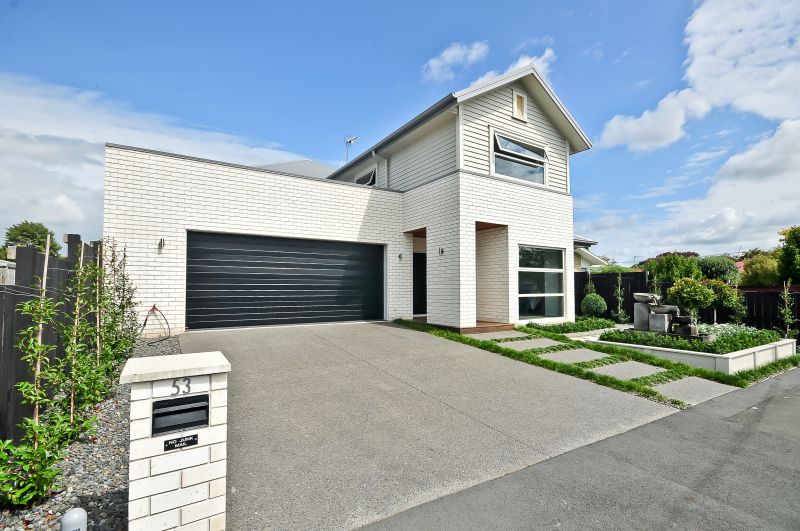
While house-hunting in France isn’t a walk in the park, there’s no doubt that it’s one of the most charming places to do it! Driving through Provence’s postcard-perfect villages and visiting houses brimming with history and character makes the journey worth the bumpy ride.
And while we haven’t yet found our perfect Provençal pad, I’m hopeful that our dream house is just around the corner… Watch this space!
Tell me – have you even bought a property in a foreign country? What surprises did you come across?
Liked this? Pin it!
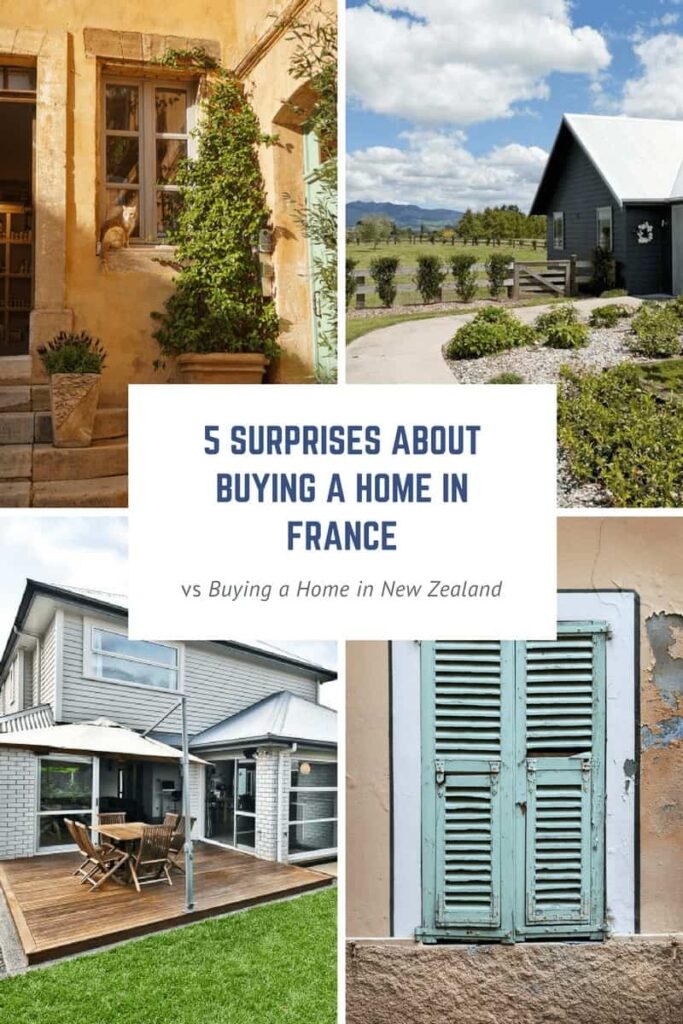

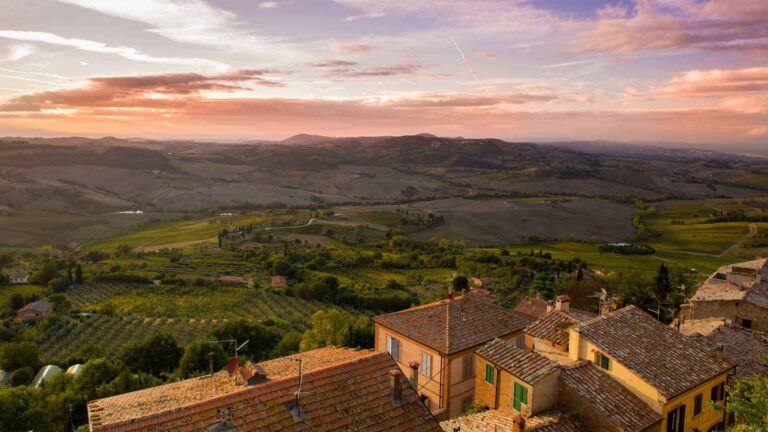

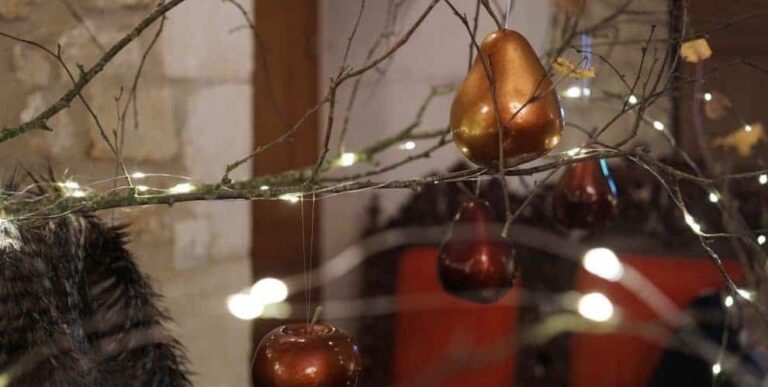

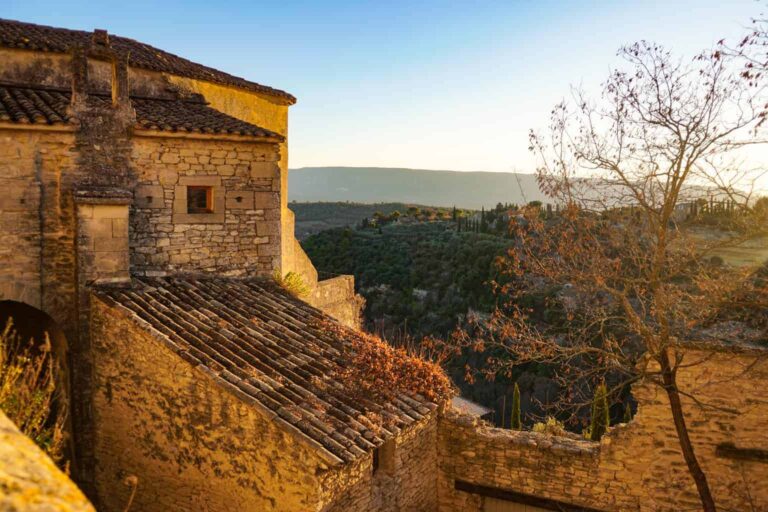
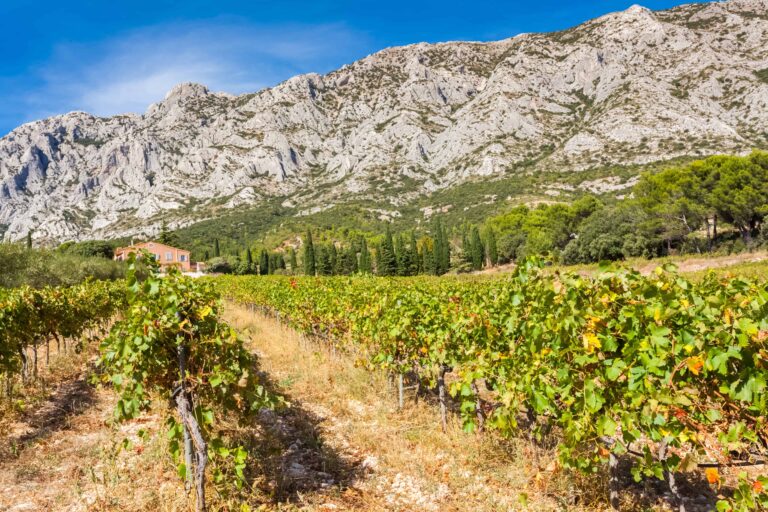
Hi there, congrats on your new home! I didn’t realize you were moving away from Saintes… guess I won’t be meeting you anytime soon. ;-(
House buying in France is way different than in the US as well. Same types of things surprised me, like how houses are presented and the high notary fees!
Congrats again
Thanks so much Diane! We’re actually going to keep the house in Saintes, so will be back most school holidays 🙂 Including these summer holidays – so we need to make that catch-up happen!
Hi Nadine, that was indeed a short stop in Saintes!
I agree with most of your comments, but having grown up in Belgium and France, I am not shocked by notaire or registration fees on top of the sales price (in Belgium they are far higher than in France). I find the British habit of gazumping much more stressful. Until you actually have a foot in your new house, you are never sure if it is yours…We had some very efficient estate agents and in three trips from Brussels to Charente Maritime found our dream house. Best of all is, that the previous owner only moves to the other side of the village and will be looking after the property until we arrive. Can you imagine a better welcome? I hope you will enjoy Provence – it was the family’s home for many years .
Sounds like you got very lucky with your house purchase! Although, I must admit, we’ve been lucky too with how the process has panned out so far and with the people we’ve bought from. Would you believe we’re about to do it all over again? Yes, third time (in France!) lucky I hope 🙂
The reason for the address secrecy is that many properties are advertised with different agents and even at different prices with each agent, and there is no shared commission – all the agents are competing. So not only does M. Dupont not want you doing a deal with the owner, he doesn’t want you finding out that his arch rival Mme Martin has the house advertised for a few thousand euros less, and doing a deal with her instead.
Hello! We’re looking to purchase in the South of France (around Montpellier) over the next month or two. Might we correspond directly via email?
Thank you in advance! This article was helpful.
Jan
Hi Jan! Glad this article was helpful for you. Sounds like you have adventures ahead! Yes, feel free to shoot me an email 🙂
Oh, yes, I recognize this adventure! A few years ago we bought a house in Languedoc, and although the actual purchase was not difficult, the search was chaos! Like you described. No multi-listing service as I’m used to in the US and the Netherlands. All this secrecy! The messy houses… Houses listed on Leboncoin would offer pictures of washing lines and WCs — just a toilet. Or three pictures of the same view (nice, but 3?) and nothing else. We saw two listings of the same house next to each other, one by the owner for one price and another one from the agent for another price. Anyway I can go on, but it makes for fun conversation and I love living here and it always takes a sense of humor to adjust and take things as they are. As my American husband says: It’s their country, they can do as they want.
Interesting post. I am french and lived a few years in New Zealand before moving back to Provence. The real estate market and habits are indeed very different. This made me think we shall improve (especially after my own experience of buying in France). I am now an agent and joined Provence Home, we try to give the best service possible and really help you out in your research. Shall you have a project in the Luberon or Aix-en-Provence, feel free to contact me for any question !
Thanks Jean-Xavier, we’ve actually just bought a home in Provence, but will keep your details on hand!